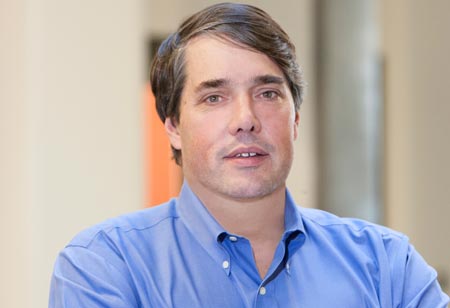

Thank you for Subscribing to Food Business Review Weekly Brief

The turn of the millennium in 2000 was supposed to be an exciting event. Instead, for the IT and internet communities, it was a looming disaster. Thanks to a widespread computer programming shortcut from the early days of the technology, many programs only allowed two digits for each year — 1987, for example, would have been coded as just 87. That’s fine when every year begins with 19 but can crash the entire system when years begin starting with 20.
We’re starting to see similar “crash the system” forces at work in food and health as well. Yesterday 300 people died in the United States from Type 2 Diabetes. In the last 24 hours, the US spent $5.3B on healthcare and other issues related to poor nutrition. The next set of innovations you may have never heard of is transforming the science and production of food with the same goals in mind. Improve access to healthy, nutritious food to better feed the world and promote a stronger planet. Companies like Benson Hill, Geltor, Bonumose, Bright Seed, Molecular Assemblies, Arable, FlyWheel, and others are marshaling the science of AI, Big Data, CRISPR, RNA, and new business models to deliver better food at a lower cost. They are improving the production of existing crops and innovating new foods through synthetic biology. They are using data to optimize supply chains. They are listening to consumers with new needs. Better food at a lower cost, with transparency and less waste. We spend $1.7T each year on food in the United States. We spend $1.9T on the healthcare cost of poor nutrition. Globally, the growth of the middle class requires a near doubling of protein production by 2050. On September 28th, the White House convened a meeting on nutrition, the first major nutrition policy meeting at the White House in more than 50 years. For decades doctors, policymakers and scientists have nudged us toward this important point. “The increase of global access to quality affordable food reduces the geopolitical power of those that use food and energy to exert undue power.” Highly refined sugar (and ultra-processed grain, which turns into sugar) in so many foods is the culprit that is addicting, afflicting, and killing more Americans annually than fentanyl and other illicit drugs. We are at a crossroads. For 75 years doctors thought that health was a balance of calories in, and calories expended. Likely that perspective is why we have runaway obesity. Now, we understand that health is tied to our metabolism. In the extreme, metabolic instability leads to Type 2 diabetes, the fastest-growing pandemic in the United States. We are learning the health impact of metabolic instability starts with our food well before we ever see it in our blood. We are beginning to see the impact of refined sugars in our food and the inflammation it creates. Alzheimer's, cardiovascular disease, Type 2 diabetes, and even Covid are in part, or perhaps significantly, linked to this inflammation. Despite the best efforts of the Affordable Care Act and other healthcare policies, our health continues to get worse, and the cost of care continues to climb. The problem is not healthcare. The problem is food. It is clear if we use innovation to improve nutrition, we will also reduce the cost of better nutrition and waste. The combination of understanding nature and science, tied to better business models, leads to better food, less healthcare cost, and less environmental impact. The process of more affordable food is also a process of eliminating waste. The delivery of better nutrition reduces metabolic instability. The increase of global access to quality affordable food reduces the geopolitical power of those that use food and energy to exert undue power. Looking back at the early days of the internet, it is important to remember that transformation is a 15-20 year process. No one understood Amazon or Google in the late 90s. It took time for investors to see the opportunities in those companies. Some got rich because they saw it early. Some lost money because they saw it too early. We are in a vortex of disruption related to the food system. We and our peers have invested in hundreds of new ventures focused on nutrition. A few companies have gone public. Many more will soon join them. The depth of the technology and opportunity is breathtaking. The expanse of understanding is rapidly growing. Food is Health. Innovation is Better. Carter Williams is the CEO and Managing Partner of iSelect Fund.
However, if you would like to share the information in this article, you may use the link below:
https://www.foodbusinessreviewapac.com/cxoinsight/innovation-to-improve-nutrition-nwid-529.html